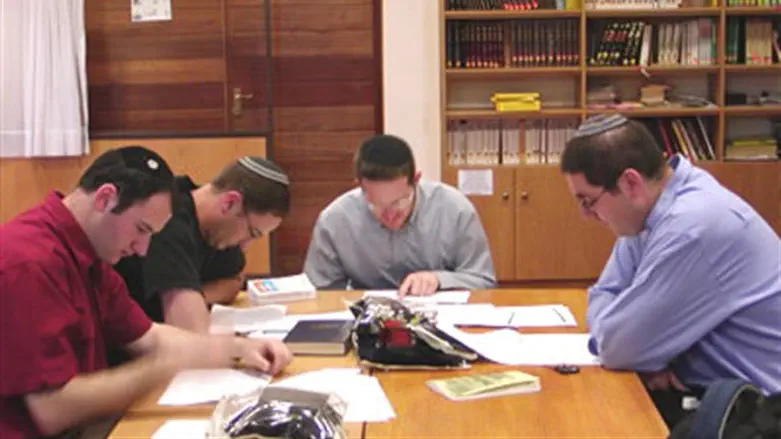
Dedicated in memory of Yaakov Aharonov z"l
Dvar Torah by Rabbi Ilan Goldman, former Rav-Shaliach, Bnei Akiva England, currently Executive Director, Project Aseret
Whenever the topic of korbanot (Temple offerings) comes up, a clear memory comes to mind of an incident when I was in Yeshiva High School in Israel. My rabbi asked the class very bluntly, ‘Who wants to go now to the Beit HaMikdash and give a sacrifice? Who wants to see all the blood pouring out of the animal onto the floor? Etc. (I will spare you the rest!).
Needless to say, no-one jumped off his chair to run to Jerusalem.
Today in the modern world, very few people are accustomed to seeing animals slaughtered. It is therefore pretty obvious why we would be disgusted by the idea of korbanot as opposed to being uplifted by it. We would find ourselves far more elevated by a good shul service than by any form of animal sacrifice. We can easily settle for the Kotel and not wish to reach the Beit HaMikdash. For this reason we might find the Midrash which teaches that all korbanot will cease from existence in the future a very relevant message.
The Gemara[1] tells an astounding story of how the human drive to serve idols was annulled at the beginning of the second Beit HaMikdash. As this occurred, a fiery figure with a likeness to a lion cub immerged from the Holy of Holies. This powerful inner urge, which pushed people to go and worship idols, is also something we can hardly relate to today. In fact when a Talmudic scholar thought badly of one of Israel’s kings for him worshiping idols, the king came to him in a dream and told him that had the scholar lived in that generation he would have run to worship idols.
זֶה לְעֻמַּת זֶה עָשָׂה הָאֱ־לֹהִים, ‘God hath made even the one as well as the other’[2] – Hashem created the world with a balance to it. The desire that draws a man to bad, such as idolatry, is the same desire that draws him to good, such as prophecy.
When the desire to worship idols was abolished, so was prophecy. Lacking this deep inner urge of worshipping, even worshipping Hashem has become somewhat external to us and we are unable to achieve prophecy – the greatest form of closeness to Hashem.
The Ramban[3] teaches that the idea of korbanot is in order for the man offering the sacrifice to see the animal as if it is there in exchange for himself, for it is he who should really be sacrificed to Hashem. In the future, when people will resume this desire of getting close to Hashem, korbanot would yet again be an adequate way to achieve this. In fact, the Hebrew word קָרְבָּן comes from the word קָרוֹב, meaning close. It is the sacrifices that we offer Hashem that actually make us closer to Him.
B’ezrat Hashem when we come to this realisation, our whole spiritual world and appreciation of Judaism will be elevated to a much higher level.
[1] Talmud Bavli, Sanhedrin 102b
[2] Kohelet 7:14
[3] Ramban’s commentary on Vayikra 1:9
